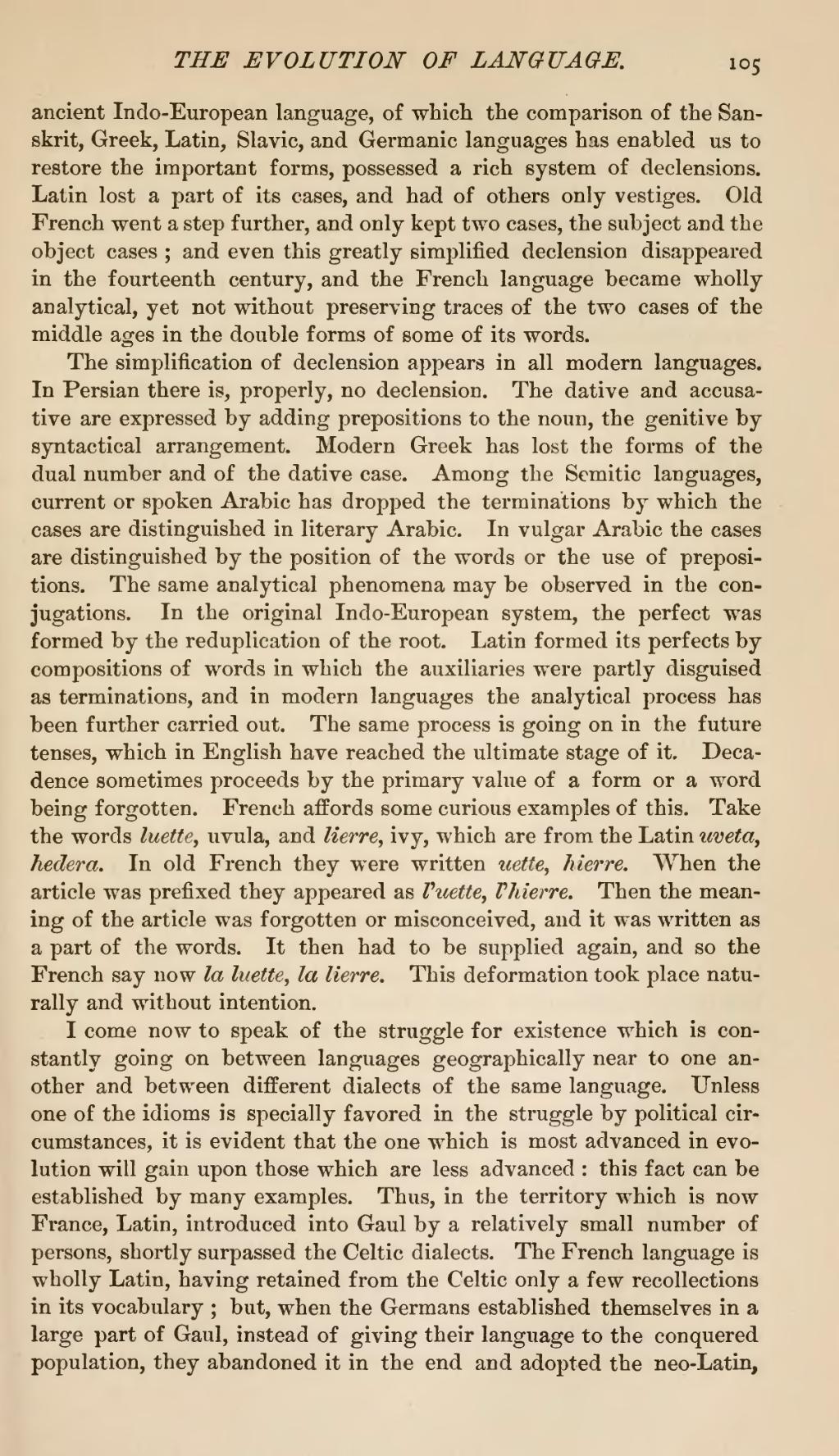ancient Indo-European language, of which the comparison of the Sanskrit, Greek, Latin, Slavic, and Germanic languages has enabled us to restore the important forms, possessed a rich system of declensions. Latin lost a part of its cases, and had of others only vestiges. Old French went a step further, and only kept two cases, the subject and the object cases; and even this greatly simplified declension disappeared in the fourteenth century, and the French language became wholly analytical, yet not without preserving traces of the two cases of the middle ages in the double forms of some of its words.
The simplification of declension appears in all modern languages. In Persian there is, properly, no declension. The dative and accusative are expressed by adding prepositions to the noun, the genitive by syntactical arrangement. Modern Greek has lost the forms of the dual number and of the dative case. Among the Semitic languages, current or spoken Arabic has dropped the terminations by which the cases are distinguished in literary Arabic. In vulgar Arabic the cases are distinguished by the position of the words or the use of prepositions. The same analytical phenomena may be observed in the conjugations. In the original Indo-European system, the perfect was formed by the reduplication of the root. Latin formed its perfects by compositions of words in which the auxiliaries were partly disguised as terminations, and in modern languages the analytical process has been further carried out. The same process is going on in the future tenses, which in English have reached the ultimate stage of it. Decadence sometimes proceeds by the primary value of a form or a word being forgotten. French affords some curious examples of this. Take the words luette, uvula, and lierre, ivy, which are from the Latin uveta, hedera. In old French they were written uette, hierre. When the article was prefixed they appeared as l'uette, l'hierre. Then the meaning of the article was forgotten or misconceived, and it was written as a part of the words. It then had to be supplied again, and so the French say now la luette, la lierre. This deformation took place naturally and without intention.
I come now to speak of the struggle for existence which is constantly going on between languages geographically near to one another and between different dialects of the same language. Unless one of the idioms is specially favored in the struggle by political circumstances, it is evident that the one which is most advanced in evolution will gain upon those which are less advanced: this fact can be established by many examples. Thus, in the territory which is now France, Latin, introduced into Gaul by a relatively small number of persons, shortly surpassed the Celtic dialects. The French language is wholly Latin, having retained from the Celtic only a few recollections in its vocabulary; but, when the Germans established themselves in a large part of Gaul, instead of giving their language to the conquered population, they abandoned it in the end and adopted the neo-Latin,

